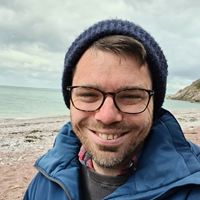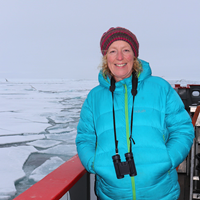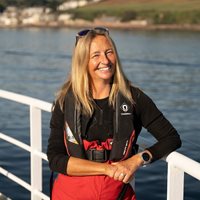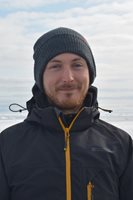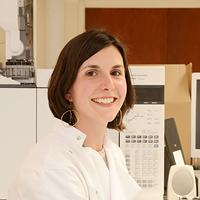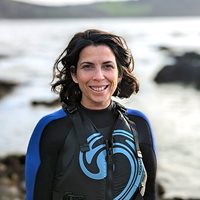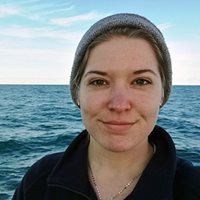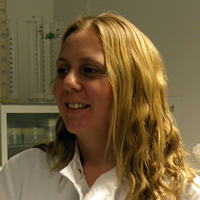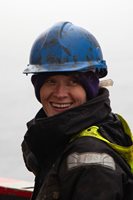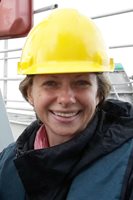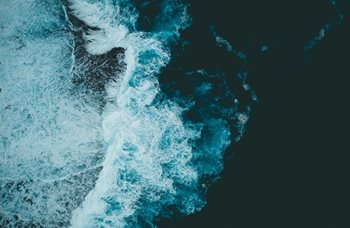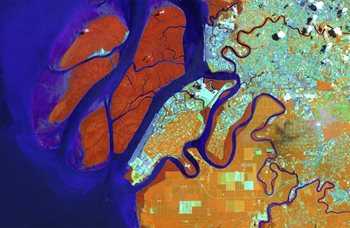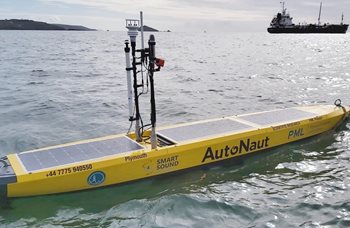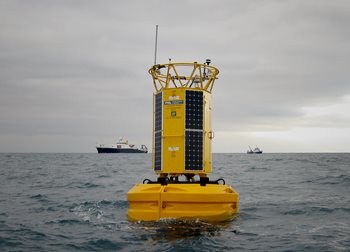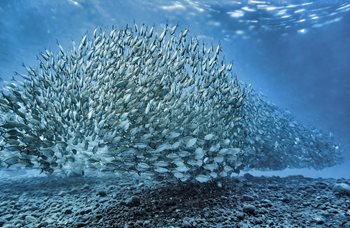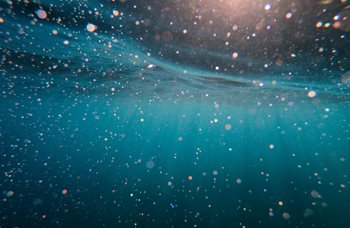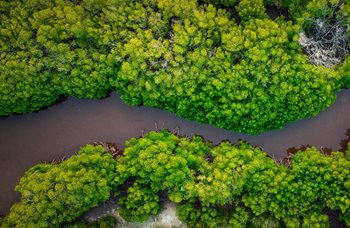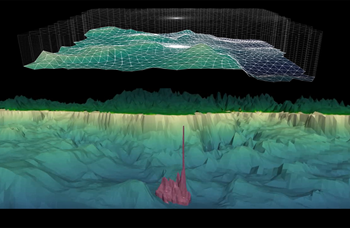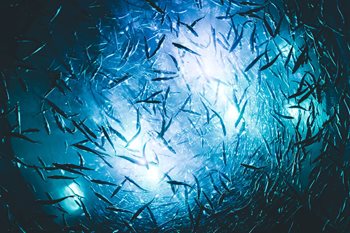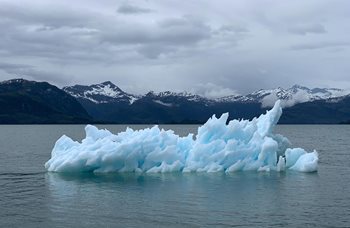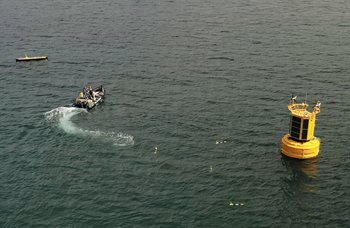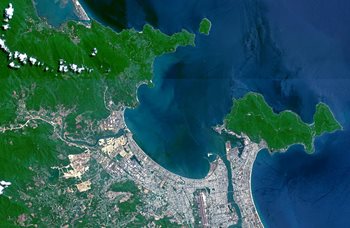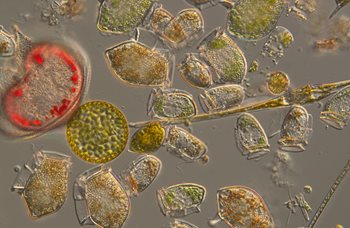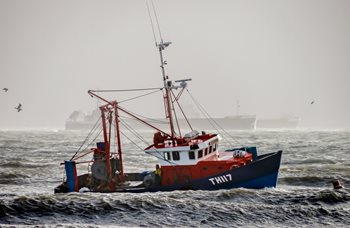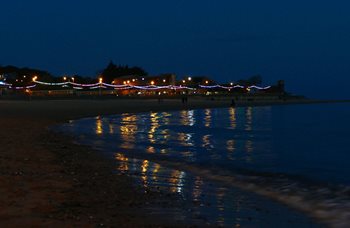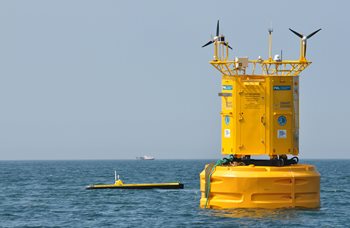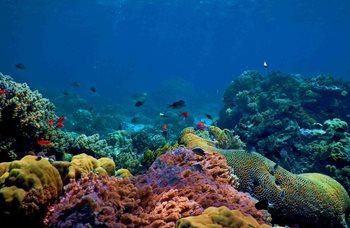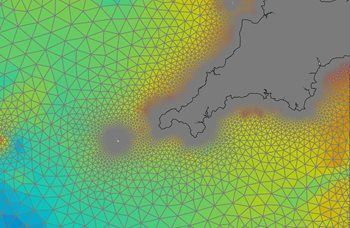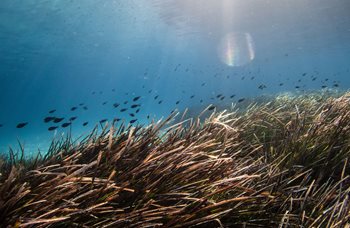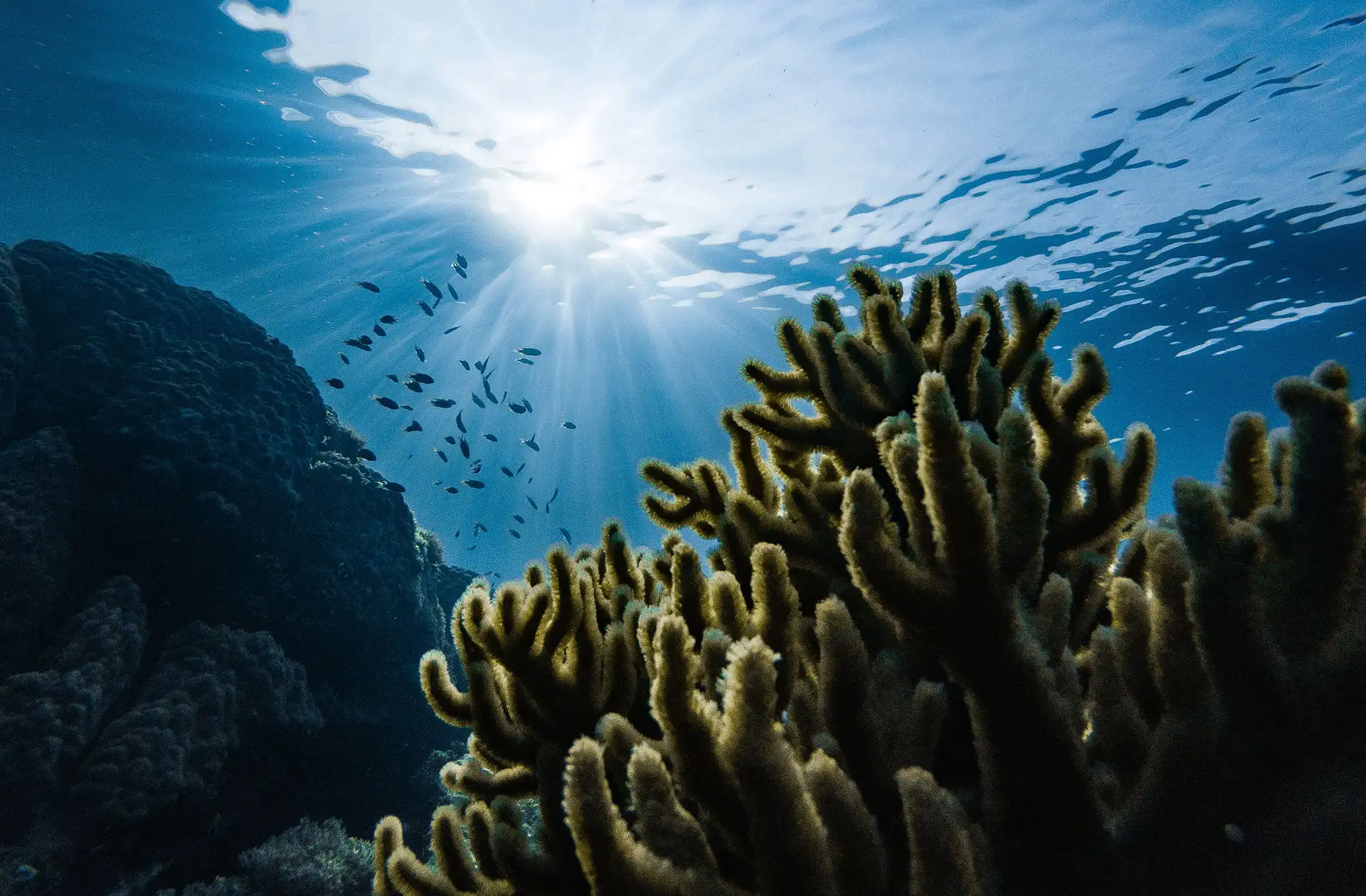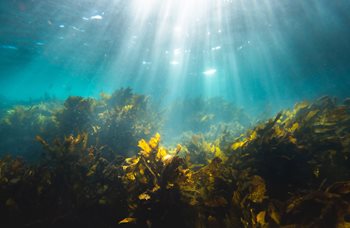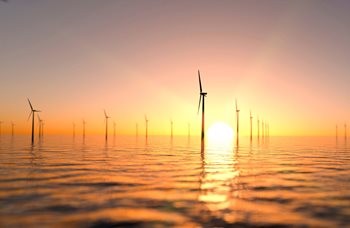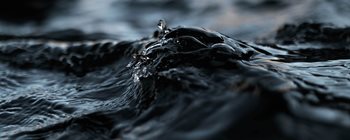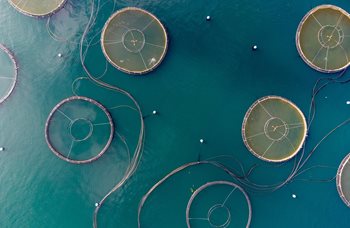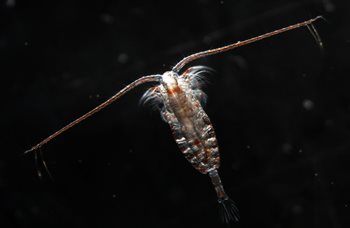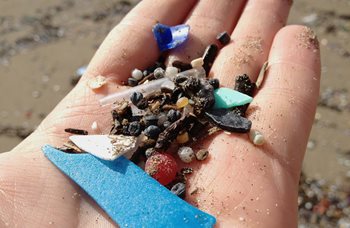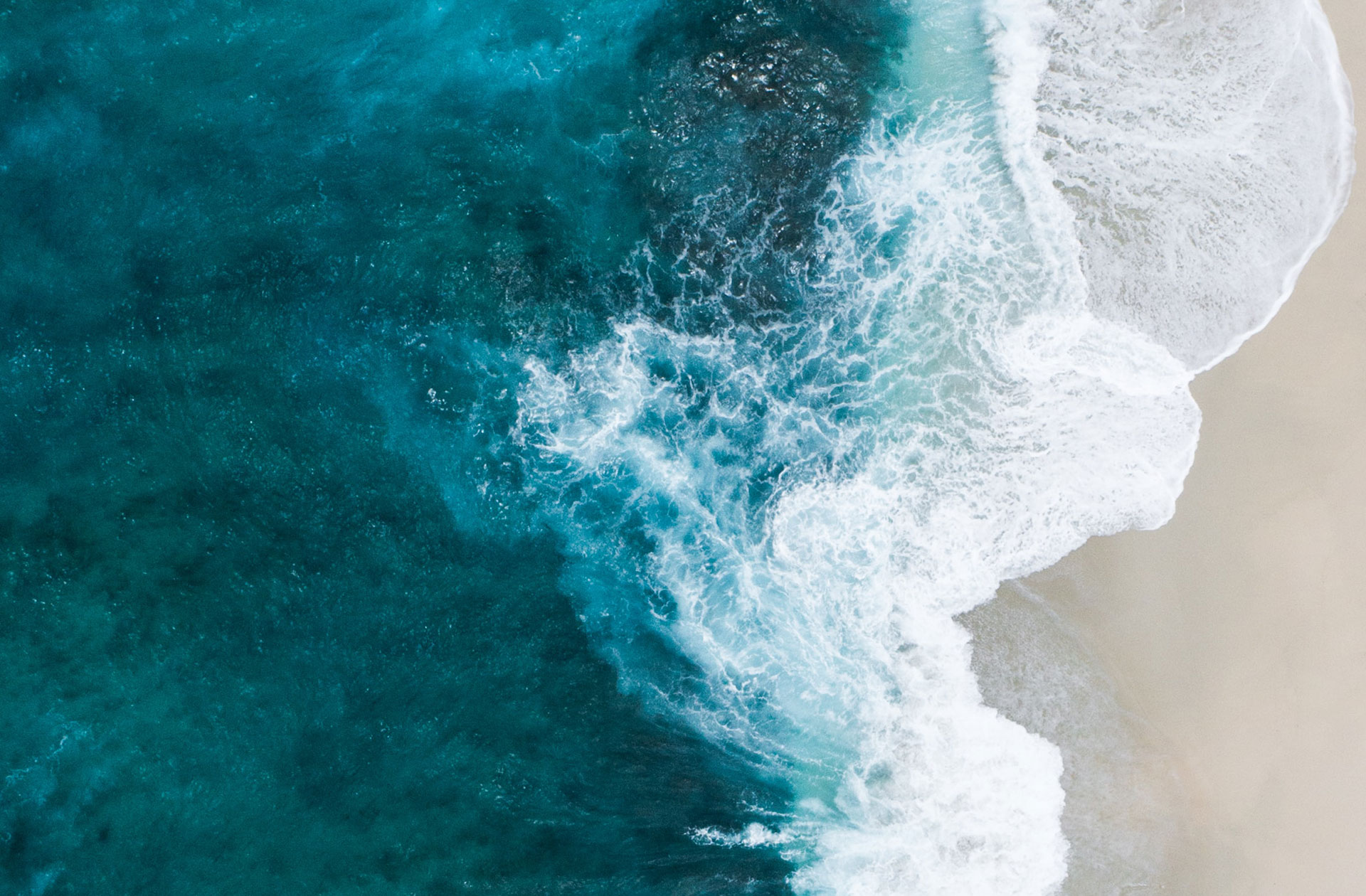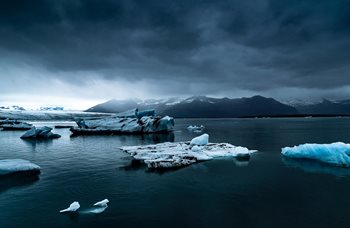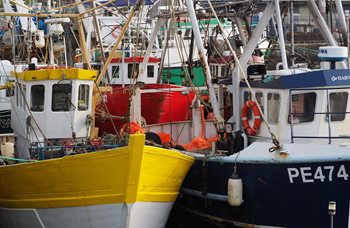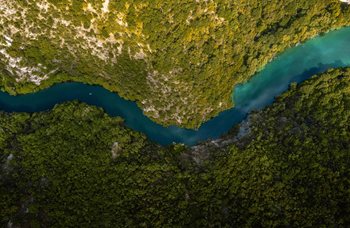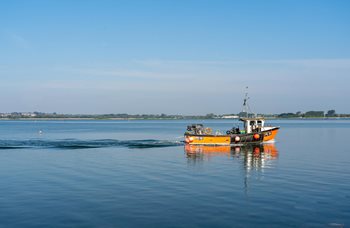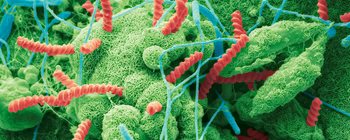Science Group
Marine Ecology and Biodiversity
Our mission is to undertake excellent high-impact research on marine ecosystems to understand how and why they respond to environmental change and human pressures, and what determines their potential for adaptation, resilience and sensitivities in different contexts.
The Marine Ecology and Biodiversity group is at the forefront of work on the assessment of biological and ecosystem responses to climate change, ocean acidification and Blue Carbon as well as pioneering research on the prevalence and impacts of microplastics and artificial light at night.
The group employs field investigations, laboratory experiments and analyses of large biological and numerical modeling datasets to determine the causes and consequences of ecological change, the mechanisms driving ecological interactions and to address specific hypotheses regarding the impacts of climatic and anthropogenic stressors.Our activities encompass timescales from the short term (minutes, hours, weeks) to multi-decadal observations, and scales of organization from molecules through microbes, phytoplankton, zooplankton, benthic meiofauna, macrofauna to megafauna.
We use this knowledge to further help the development of state-of-the-art, process-based models of the marine environment, its species and habitats, as well as to support a better understanding of the goods and services it provides. Our scientists and data from the Western Channel Observatory (WCO) have been central in developing indicators and reporting targets for marine policy in the UK and the EU (e.g. UK Marine Strategy, MSFD, OSPAR) and at pan-Atlantic scales (e.g. ICES).
Our research seeks to:
- Understand and quantify the ecological connections among organisms and between organisms and their environment, identifying what drives changes in these interactions and the consequences, in order to to facilitate novel management strategies and enhance blue growth
- Explore the range of temporal and spatial variability across scales of biological organisation, using and developing analytical approaches and applying them to spatial and temporal data to quantify how species and systems vary.
- Identify the impacts of climatic change and human activity on organisms and ecosystems. This includes the direct and indirect effects of climate change (e.g. warming, stratification, extreme weather, ocean acidification, deoxygenation) and stressors from human activity including disturbance, contaminants, noise, and light.
- Understand and investigate the specific drivers of change in the polar regions that lead to sensitivity and/or resilience of polar animal and plant life, increasing our ability to predict ecosystem shifts in both the polar regions and at lower latitudes
- Determine what nature-based solutions limit and mitigate the impacts of climate change and pollution impacts in the marine environment, conducting research into ecologically inspired solutions.
- Cement PML as a leader in Marine Ecology and Biodiversity Research; fully exploiting our world class facilities, existing and new data sets and highly skilled staff.
- Focus key areas of scientific excellence in multiple stressors, emerging contaminants and climate change impacts.
- Increase our understanding of variability in biodiversity, community structure and ecological processes at different scales, including the biotic and abiotic links within marine ecosystems.
- Apply our knowledge to better identify, predict and mitigate the consequences of human impacts and climatic change and to protect biodiversity, thereby underpinning the maintenance of healthy, diverse, resilient and productive marine ecosystems.
PML Project pages
-
APICS
-
Artificial Light in Coastal Ecosystems (ALICE)
-
Atlantic Ecosystem Assessment, Forecasting and Sustainability (AtlantECO)
-
BIO-PLASTIC-RISK: Biodegradable Bioplastics - Assessing Environmental Risk
-
DREAMS - Decommissioning - Relative Effects of Alternative Management Strategies
-
FOCUS: Future States of the global Coastal ocean: Understanding for Solutions
-
FutureMARES: Climate Change and Future Marine Ecosystem Services and Biodiversity
-
North East Atlantic hub of the Global Ocean Acidification Observing Network
-
Oceanus
-
Quantifying the contribution of sympagic versus pelagic diatoms to Arctic food webs and biogeochemical fluxes (MOSAiC SYM-PEL)
-
Removing marine microplastics with mussel power
-
S-3 EUROHAB - Sentinel products for detecting EUtROphication and Harmful Algal Bloom events
-
The Changing Arctic Ocean Seafloor (ChAOS) - how changing sea ice conditions impact biological communities, biogeochemical processes and ecosystems
-
TYRE-LOSS: Lost at Sea - where are all the tyre particles?
-
War on tiny giants - do viruses impact Pelagibacterales genotype dynamics in the Western English Channel
-
Western Channel Observatory (WCO)
Other projects
- BIO-PLASTIC-RISK
- Climate Change Stresses of Antarctic krill
- Developing Nature-based solutions to plastic pollution
- MicroOPT
- MSPACE
- Tyre-LOSS
Resources and Links
MEB researchers play a major part in the sampling, analysis and data curation of the Western Channel Observatory (WCO). The WCO is an oceanographic time-series and marine biodiversity reference site in the Western English Channel just south of Plymouth. In situ measurements are undertaken weekly using the research vessels of the Plymouth Marine Laboratory and the Marine Biological Association, coupled to higher resolution sampling, for example at data buoys. Some of these measurements provide a near unbroken time series typically at weekly resolution, and bridge across pelagic, benthic and atmospheric domains and multiple sites, are complemented by PML's recognised excellence in ecosystem modelling and satellite remote sensing science. By integrating these different observational disciplines we can begin to disentangle the complexity of the marine ecosystem and understand how it is responding to stressors that are superimposed upon the natural seasonality.
These time series feed into a series of networks, for example ICES, MCCIP reports, reporting indicators to meet policy requirements (OSPAR) and South West Marine Ecosytems Annual Reports.
Capabilities
People are the key resource in MEB. We have a great depth of taxonomic expertise that includes benthic meiofauna to macrofauna, planktonic protists and metazoans, analytical expertise spanning carbonate both in terms of chemistry to multivariate statistics of large datasets. In terms of infrastructure we have Plymouth’s Research vessel Quest, the Western Channel Observatory time series and biodiversity reference site, and our excellent newly refurbished research laboratory facilities. These include our state-of-the-art intertidal mesocosm laboratory, the behaviour, sound and imaging laboratory, and polar to tropical constant temperature rooms, where we can design and implement cutting-edge research into the impacts of anthropogenic change through comprehensive environmental controls.
A suite of new analytical laboratories, including the molecular biology facility, the microbiology facility, the biodiversity suite and the ultraclean microplastic facility, housing new equipment such as a Fourier Transform Infra-red and near infra-red imaging system, infra-red photography, a suite of microscopes, FlowCam and various optical sensors, enable MEB to deliver globally leading marine ecology and biodiversity research.
Latest publications
- Madeira, D; Madeira, C; Calosi, P; Vermandele, F; Carrier-Belleau, C; Barria-Araya, A; Daigle, R; Findlay, HS; Poisot, T; 2024. Multilayer biological networks to upscale marine research to global change-smart management and sustainable resource use . Science of The Total Environment.
- Filbee-Dexter, K; Pessarrodona, A; Pedersen, MF; Wernberg, T; Duarte, CM; Assis, J; Bekkby, T; Burrows, MT; Carlson, DF; Gattuso, J-P; Gundersen, H; Hancke, K; Krumhansl, KA; Kuwae, T; Middelburg, JJ; Moore, PJ; Queiros, AM; Smale, DA; Sousa-Pinto, I; Suzuki, N; Krause-Jensen, D; 2024. Carbon export from seaweed forests to deep ocean sinks . Nature Geoscience.
- Cole, MJ; Gomiero, A; Jaén-Gil, A; Haave, M; Lusher, A; 2024. Microplastic and PTFE contamination of food from cookware . Science of The Total Environment.
- Ruhl, S; Moller, KO; 2024. Storm events alter marine snow fluxes in stratified marine environments . Estuarine, Coastal and Shelf Science.
- Chust, G; Villarino, E; McLean, M; Mieszkowska, N; Benedetti-Cecchi, L; Bulleri, F; Ravaglioli, C; Borja, A; Muxika, I; Fernandes-Salvador, JA; Ibaibarriaga, L; Uriarte, A; Revilla, M; Villate, F; Iriarte, A; Uriarte, I; Zervoudaki, S; Carstensen, J; Somerfield, PJ; Queiros, AM; McEvoy, AJ; Aubert, A; Hidalgo, M; Coll, M; Garrabou, J; Gómez-Gras, D; Linares, C; Ramírez, F; Margarit, N; Lepage, M; Dambrine, C; Lobry, J; Peck, MA; de la Barra, P; van Leeuwen, A; Rilov, G; Yeruham, E; Brind’Amour, A; Lindegren, M; 2024. Cross-basin and cross-taxa patterns of marine community tropicalization and deborealization in warming European seas . Nature Communications.
- Hill, SL; Atkinson, A; Arata, JA; Belcher, A; Nash, SB; Bernard, KS; Cleary, A; Conroy, JA; Driscoll, R; Fielding, S; Flores, H; Forcada, J; Halfter, S; Hinke, JT; Hückstädt, L; Johnston, NM; Kane, M; Kawaguchi, S; Krafft, BA; Krüger, L; La, HS; Liszka, CM; Meyer, B; Murphy, EJ; Pakhomov, EA; Perry, F.; Piñones, A; Polito, MJ; Reid, K; Reiss, C; Rombolá, E; Saunders, RA; Schmidt, K; Sylvester, ZT; Takahashi, A; Tarling, GA; Trathan, PN; Veytia, D; Watters, GM; Xavier, JC; Yang, G; 2024. Observing change in pelagic animals as sampling methods shift: the case of Antarctic krill . Frontiers in Marine Science.
- Aguirre-Sanchez, A; Purca, S; Cole, MJ; Indacochea, A; Lindeque, PK; 2024. Prevalence of microplastics in Peruvian mangrove sediments and edible mangrove species . Marine Pollution Bulletin.
- Talbot, E; Jontila, J-B S; Gonzales, BJ; Dolorosa, RG; Jose, ED; Sajorne, R; Sailley, SF; Kay, S; Queiros, AM; 2024. Incorporating climate-readiness into fisheries management strategies . Science of The Total Environment.
- McIlwraith, HK; Lindeque, PK; Miliou, A; Tolhurst, TJ; Cole, MJ; 2024. Microplastic shape influences fate in vegetated wetlands . Environmental Pollution.
- McQuatters-Gollop, A; Stern, RF; Atkinson, A; Best, M; Bresnan, E; Creach, V; Devlin, M; Holland, M; Ostle, C; Schmidt, K; Sheppard, L; Tarran, GA; Woodward, EMS; Tett, P; 2024. The silent majority: Pico- and nanoplankton as ecosystem health indicators for marine policy . Ecological Indicators.
People who work in this area of research
Professor Atkinson
Marine Ecologist
aat@pml.ac.uk
Amanda Beesley
Zooplankton analyst
abee@pml.ac.uk
Dr Zara Botterell
PhD Fellow
zab@pml.ac.uk
Dr Matthew Cole
Senior Marine Ecologist and Ecotoxicologist
mcol@pml.ac.uk
Dr Rachel Coppock
Marine Ecologist
rac@pml.ac.uk
Heather Emberson-Marl
MSc student
heem@pml.ac.uk
Elaine Fileman
Plankton Ecologist
ese@pml.ac.uk
Professor Helen Findlay
Biological Oceanographer
hefi@pml.ac.uk
Anneliese Hodge
PhD student
aho@pml.ac.uk
Lucy Howarth-Forster
PhD student
Professor Kerry Howell
Professor of Deep-Sea Ecology
kho@pml.ac.uk
Professor Pennie Lindeque
Head of Science: Marine Ecology and Biodiversity
pkw@pml.ac.uk
Andrea McEvoy
Plankton Ecologist
ajmc@pml.ac.uk
Hayley McIlwraith
PhD student
Louise McNeill
Benthic Ecologist and Faunal Taxonomist
clmc@pml.ac.uk
Thomas Mesher
Macrofaunal Ecologist
thm@pml.ac.uk
Joana Nunes
Benthic Ecologist
jonu@pml.ac.uk
Dr Helen Parry
Molecular Biologist and Physiologist
hech@pml.ac.uk
Christine Pascoe
Ecotoxicologist
ckh@pml.ac.uk
Professor Ana M Queirós
Marine and climate change ecologist
anqu@pml.ac.uk
Dr Saskia Rühl
Digital Marine Biologist
sru@pml.ac.uk
Dr Mahasweta Saha
Marine Chemical Ecologist
msa@pml.ac.uk
Natalie Smith
PhD student
nasm@pml.ac.uk
Dr Karen Tait
Microbial Ecologist
ktait@pml.ac.uk
Dr Liz Talbot
Marine Ecologist
sat@pml.ac.uk
Claire Widdicombe
Plankton Ecologist
clst@pml.ac.uk
Charlotte Woodhouse
PhD student
cwood@pml.ac.uk



